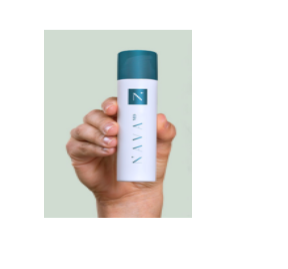Androgenic hormone or testosterone is a vital hormonal agent for males. It manages libido, bone mineral density, muscles, and durability. As gentlemen grow older, their testosterone ranges drop, leading to a number of symptoms such as low energy, depressive disorders, and erotic dysfunction. Male growth hormone replacing treatment method (TRT) is a treatment choice which will help bring back androgenic hormone or testosterone amounts and improve signs. However, like all health care therapies, trt online has risks and rewards that must be carefully well-balanced. In this particular complete guideline, we’ll investigate all that you should know about TRT to help make an informed decision about whether or not it’s good for you.
What exactly is TRT?
TRT can be a medical treatment that seeks to improve male growth hormone levels in males with low male growth hormone. TRT comes in various forms, which include shots, gels, sections, pellets, and sinus aerosols. Your personal doctor determines the best choice form of TRT depending on your signs, era, and medical history. TRT works by changing the missing out on androgenic hormone or testosterone within your body, relieving the signs a result of reduced androgenic hormone or testosterone. TRT also can improve minerals inside the bones, muscular mass, and energy.
Who may be a candidate for TRT?
TRT is usually recommended for males who definitely have low androgenic hormone or testosterone ranges and signs and symptoms associated with very low testosterone. Lower androgenic hormone or testosterone amounts are described as less than 300 ng/dL (nanograms per deciliter) on two individual assessments. Symptoms of lower androgenic hormone or testosterone involve decreased sex drive, erectile dysfunction, low energy, lowered muscular mass and strength, and depression. Nevertheless, TRT is not recommended for men that have prostate or cancers of the breast, great red-colored blood flow mobile counts, or obstructive sleep apnea.
Exactly what are the risks and great things about TRT?
TRT has both hazards and advantages that need to be carefully considered. The key benefits of TRT involve greater sex drive, enhanced sex work, more power, increased muscle tissue and durability, and better minerals inside the bones. Nevertheless, TRT may also cause dangers for example pimples, baldness, breast enlargement, prostate growth, apnea, and reddish colored blood vessels mobile phone counts. TRT can also improve the potential risk of heart attacks, cerebral vascular accidents, and blood clots, even if this risk is dubious and requirements much more study.
How is TRT given?
TRT may be applied through shots, gels, spots, pellets, and sinus aerosols. Injections are often offered every two to four days and can be given through your doctor or personal-applied. Gels are placed on the skin and distributed around the blood stream. Patches are applied to your skin and changed every day. Pellets are put under the pores and skin every three to six months. Sinus sprays are sprayed inside the nostrils day-to-day. Your personal doctor determines the most appropriate method of TRT to suit your needs, according to your requirements and lifestyle.
What exactly is the checking for TRT?
TRT requires normal tracking to make sure that testosterone degrees are maintained in the regular collection as well as to check for just about any side effects. You need to have your testosterone levels examined on a regular basis, generally every 3 to 6 several weeks. Your personal doctor will likely check your red-colored blood flow cellular count, prostate-specific antigen (PSA) levels, and liver functionality, as TRT could affect these variables. Your medical professional may change your TRT serving or switch to an alternative type of TRT to keep up ideal levels and minimize unwanted effects.
Simply speaking: In To put it briefly, TRT is a therapy choice which can help reduce the indications of very low androgenic hormone or testosterone and enhance total well being in men. Nevertheless, TRT has dangers and advantages that must be carefully well balanced, and typical monitoring is essential to make certain optimal effects and minimize negative effects. It’s vital to talk about TRT with your doctor to find out regardless of whether it’s the right treatment for you together with to acquire customized treatment that meets your needs and choices.



